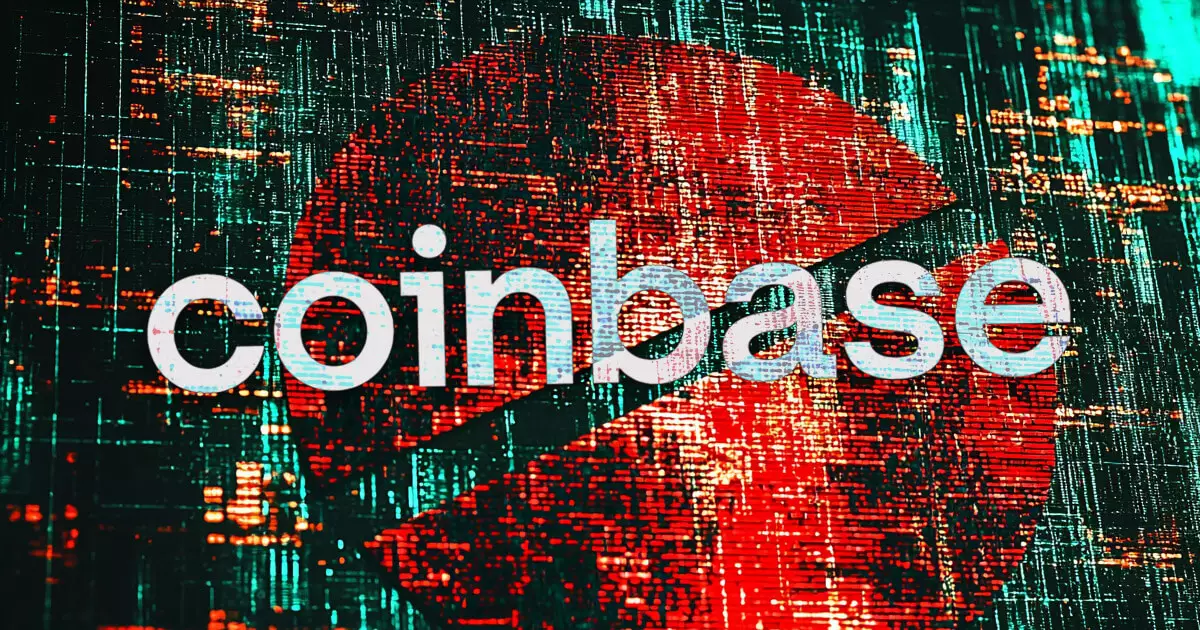In recent weeks, the crypto community has expressed significant discontent regarding Coinbase, the leading cryptocurrency exchange in the United States. This dissatisfaction stems from Coinbase’s controversial move to restrict user access via Virtual Private Networks (VPNs). This article dissects the implications of such a policy, the perspectives from both the users and the exchange, and the broader issues at play concerning privacy rights in the digital age.
The Nature of the Controversy
On December 2, product designer Scott Shapiro’s warnings reverberated through the crypto space. He asserted that Coinbase’s risk management algorithms categorize VPN usage unfavorably, associating it primarily with malicious activity. Shapiro clarified that the usage of VPNs is often linked with fraudsters; hence, legitimate users might find themselves wrongfully flagged. His comments, however, ignited a firestorm of criticism, highlighting the company’s stance as not only overly cautious but also out of touch with the needs of legitimate users seeking privacy.
VPNs serve as essential tools for online security and privacy. They connect users to remote servers, encrypting data and masking IP addresses, thus shielding individuals from unauthorized access or surveillance. With a staggering 46% of American adults reportedly employing VPNs, roughly 105 million people hinge upon these services for secure online experiences.
Cry for Privacy: User Reactions and Criticism
Coinbase’s policy has drawn ire akin to recent debates surrounding individual financial freedoms in the U.S. Users and cyber privacy advocates argue that restricting VPN access compromises a fundamental right to privacy. As the security landscape evolves, the concerns voiced by users underscore a critical issue: the balance between upholding security protocols and respecting user privacy.
Key figures, like Kraken’s Chief Security Officer Nick Percoco, have vocalized objections to Coinbase’s approach. Percoco notes that for many crypto enthusiasts, particularly in oppressive regimes, VPNs are not merely privacy tools; they are lifelines that safeguard their financial transactions against potential threats. His assertion raises an essential question: should the need for security outbalance the right to privacy, especially within a decentralized ecosystem aimed at providing financial autonomy?
Conversely, not all voices in the crypto community resonate with resistance to Coinbase’s policies. Proponents of the exchange, including crypto expert Evan Van Ness, argue that the stringent measures against VPNs are standard practices aimed at curbing fraud. With criminals often utilizing VPN services to obfuscate their activities, advocates contend that Coinbase’s caution is warranted in the fight against sophisticated scams that prey on unsuspecting users.
Van Ness’s perspective illuminates a challenging dichotomy: the necessity of ensuring platform security without alienating legitimate users who have valid reasons for utilizing VPNs. He acknowledges the challenges faced by those who use VPNs for practical reasons yet emphasizes the complexity of protecting the platform’s integrity.
The discussion surrounding Coinbase’s VPN restrictions becomes even more paradoxical when juxtaposed with the exchange’s recent legal victory over Tornado Cash, a privacy-enhancing tool. Critics, including security expert Sudo, highlight the disconnect between Coinbase’s celebration of the right to use software designed for privacy and their restrictions on what is arguably another layer of online safety. This inconsistency calls into question the rationale behind differentiating between privacy tools that the exchange finds acceptable and those it does not.
The contention between Coinbase and its users over VPN usage underscores a critical juncture in the evolving narrative of cryptocurrency and digital rights. As the digital landscape grows more complex, the need for a nuanced approach to security is paramount. Flexibility that allows users to access essential privacy tools while also safeguarding against potential fraud could bridge the divide between Coinbase and the very audience it aims to serve.
Ultimately, this situation serves as a reminder that as cryptocurrencies continue to redefine financial landscapes, the dialogue surrounding privacy, security, and user rights must remain at the forefront of the conversation. An equilibrium must be struck to ensure that the future of cryptocurrency remains accessible and secure for all users, irrespective of their circumstances.









